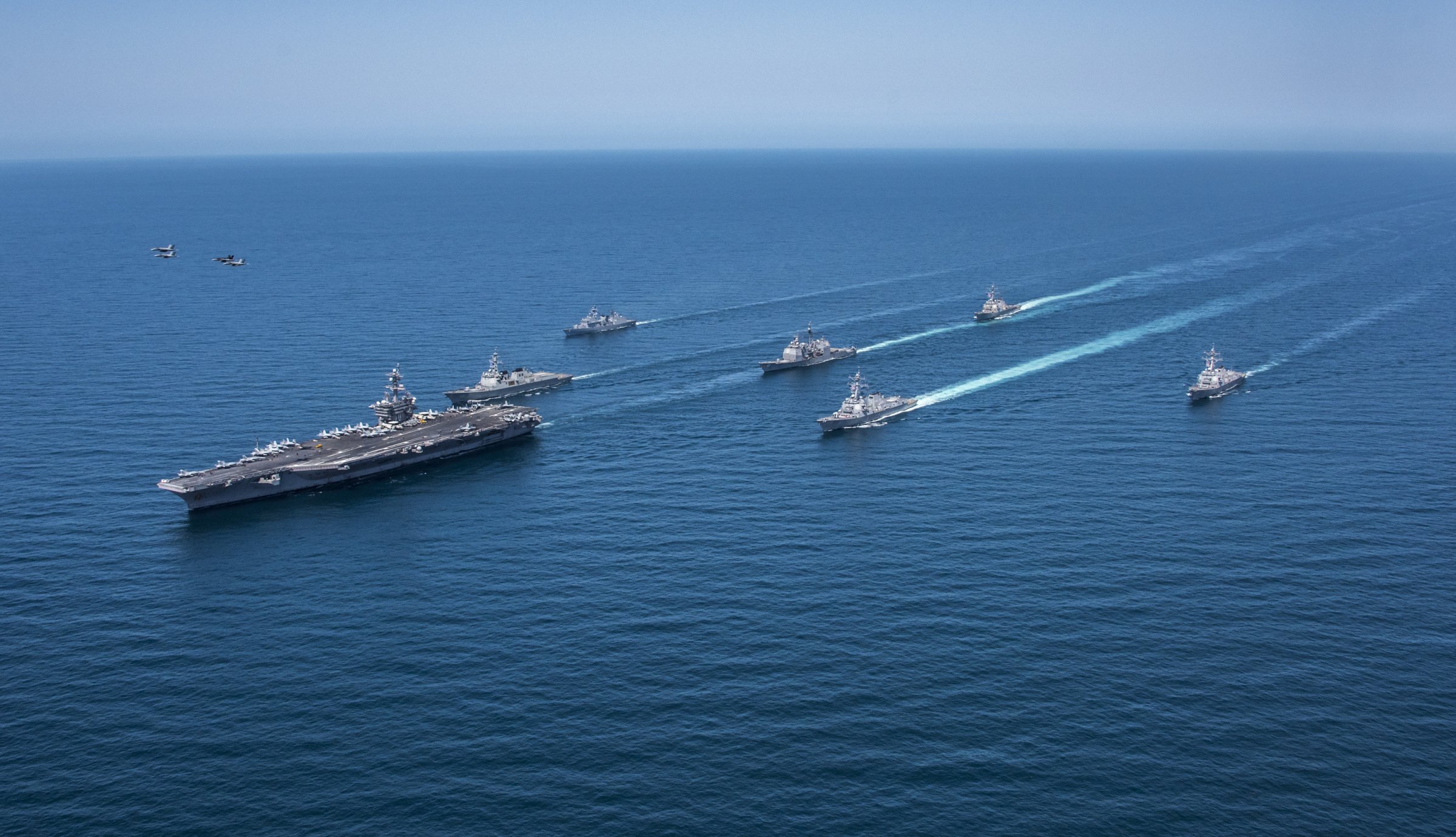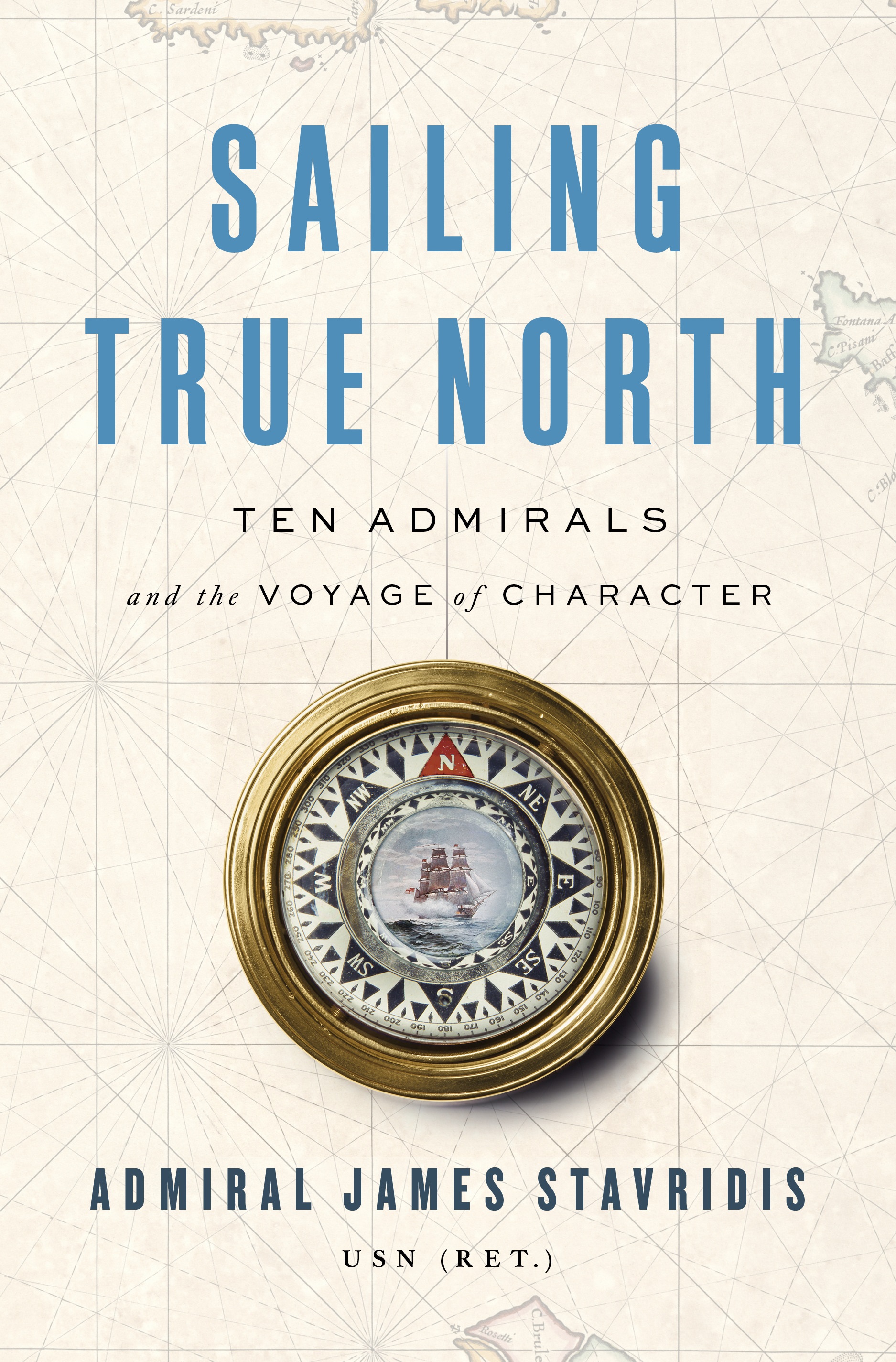
In Sailing True North: Lessons of Character from Ten Admirals I examine the lives of ten admirals whose careers stretch across 2,500 years of history and try to illuminate the most essential qualities of character so that each of us can chart a course toward becoming the best we can possibly be within our own lives.
In this post-modern era that we are witnessing the slow death of character. Driven by a popular culture globally that has turned increasingly away from classic values – honesty, commitment, resilience, accountability, moderation – to a world that moves at breakneck speed and refuses to slow down and consider what is right and just. One abiding characteristic of most of the ten admirals in my book is that they were thoughtful, intellectually grounded individuals. Perhaps the long periods at sea that almost all of them experienced have something to do with that. These admirals teach us that finding sufficient time to think and reflect is a crucial part of building character.
It is said that character is what you do when you think no one is looking – but in today’s world, someone is always looking. We have lost the ability to hone our character in private, and our lives are “on display” seemingly from the moment we are born. We “over share” publicly and under reflect privately on what our individual voyages mean.
I set out to tell a different set of stories than those that we see repeated again and again on cable news. Because I am a sailor myself, I turned to ten illustrious, interesting, and highly varied naval leaders. Each of them led across decades and in different centuries and locales; their stories are different, and their characters were shaped in dramatically varied circumstances. Therefore, the lessons to be drawn of their character – are richly distributed. And not all are entirely heroic.
Character is not leadership. It is about internal effect and the ability to influence one’s self. John Wooden, the famous UCLA basketball coach and a fine leader, summed it up well: “Be more concerned with your character than your reputation, because your character is what you really are, while your reputation is merely what others think you are.”
Sailors often have a unique opportunity to chart a course toward a good character. The sea is an unforgiving environment which daily poses hard challenges that depend on deep reserves of character to overcome. Sailing is hard and dangerous work, and the sea itself poses a constant threat, to say nothing of additional man-made dangers from pirates, enemy aircraft, or lurking submarines. It is also a contemplative world, where any sailor can walk out on a rolling deck at night and stare at the distant point where the sky meets the sea and recognize that we are merely the smallest part of a huge and diverse universe that stretches forever unto the mind of God, and which will last far beyond the age of human beings. This combination of attributes – the constant physical and moral challenge in daily life and the endless vision of eternity dangling before our eyes – creates a deepening of character in the best of sailors. And my thesis is that by learning about the lives of these ten admirals, each of us – sailor or not – can improve and deepen our own characters.
We begin our voyage over 2,500 years ago with the Admiral Themistocles, an ancient Greek facing an existential threat to his city-state, Athens; and conclude our long sail across history in the late 20th century with a woman admiral, Grace Hopper, who helps bring the Navy into the cyber age. Along the way, I look at resilience and briefly meet two living and recently retired Admirals, Michelle Howard and Bill McRaven. All are different sailors, but the inner voyage of character that each sailed offers lessons we can study and apply As with all ten of these admirals, the basic rocks and shoals of their voyages are roughly similar: the need for truth, justice, empathy, creativity, humility, humor, resilience and balance; these are contrasted with avoiding arrogance; anger, pettiness; cruelty; desire; betrayal; jealousy; and hatred. None of these Admirals were perfect – indeed, far from it in several cases. But we can sometimes learn as much from failures of character as we can from triumphs, and the nature of any human is not how they do when the choices are easy, and the metaphorical sun is shining, but rather what they do when the options are morally ambiguous, and the seas are rough.

As an exercise, I went through my old logbooks recently and totaled up all the days I spent on the deep ocean, out of sight of land. The total is over nine and a half years, day-for-day. Plenty of time spent out there in busy pursuits from gunnery to missile shoots, to simply standing the long watches steaming across the trackless oceans. But there was also a lot of time to read, reflect, and record internally my thoughts on what makes a life of character worth living. Leadership was an omnipresent demand for a young officer growing up in an ancient profession, rising from a very green ensign to, quite improbably, becoming a four- star admiral. Every day was an exercise in leading others. But the challenges I wrestled with most frequently were inside, as I sought to set my own compass to true north, seeking to live up to the standards I set for myself. I failed not infrequently. But voyage of character is long indeed, and in my case, still underway – although not often at sea these days, something I miss more than I like to admit.
In a sense, we each have three lives: a public one, defined clearly by the open statements we make from conversations at work to our posts on social media; a private one, the face that we share only with our very closest family and a few chosen friends; and a deeply personal one, known only to ourselves, where we struggle – often desperately – to make the right choices.
One should never forget that the scale by which you will measure your life is one you make yourself, forging it a bit at a time throughout the years of your life. Here in that truly personal zone, measured on the scale we construct ourselves, are the sea buoys of the channel that we should follow if our voyage is to end at the port of inner satisfaction. And as with any voyage at sea, there are dangers ahead – obstacles imposed by the world and those we create ourselves. And we cannot simply avoid the hard choices by not embarking on the voyage. Oliver Wendell Holmes correctly said “to reach a port we must sail, sometimes with the wind, and sometimes against it. But we must not drift or lie at anchor.” My hope is that my book, with its small flotilla of sea stories, can provide some navigational advice, a few well-marked buoys, and even a sturdy lighthouse or two for all who are sailing on the sea of character.
Excerpted with permission from Sailing True North, published this week by Penguin Press.
More Must-Reads from TIME
- How Donald Trump Won
- The Best Inventions of 2024
- Why Sleep Is the Key to Living Longer
- Robert Zemeckis Just Wants to Move You
- How to Break 8 Toxic Communication Habits
- Nicola Coughlan Bet on Herself—And Won
- Why Vinegar Is So Good for You
- Meet TIME's Newest Class of Next Generation Leaders
Contact us at letters@time.com